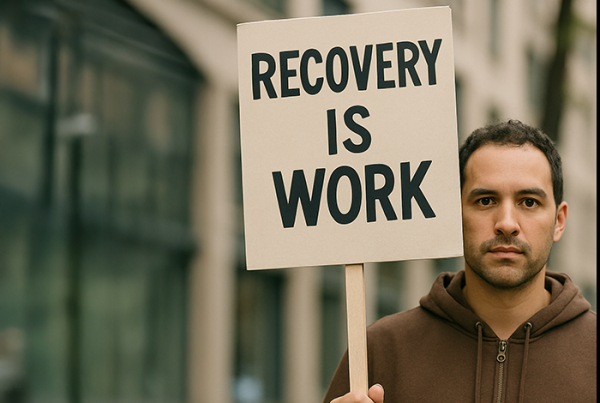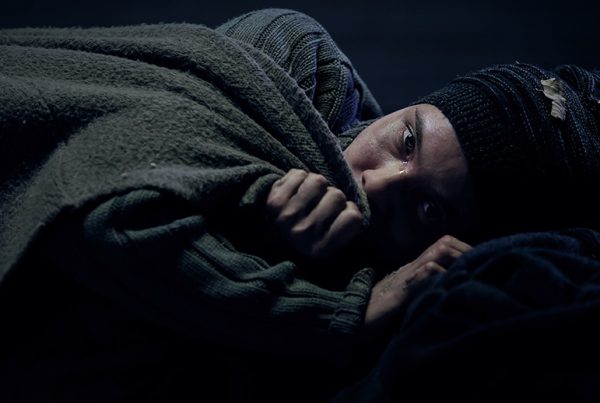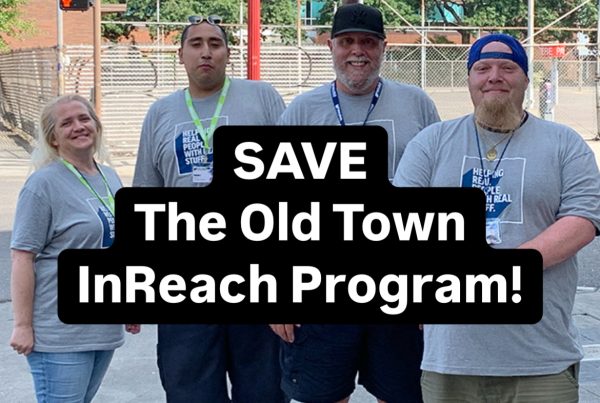Portland’s James Recycling is generously donating its plastic recycling services to Blanchet House helping to keep tons of food containers out of landfills.
By Julie Showers
As a nonprofit meal provider, Blanchet House receives tons of food donations from local businesses–more than 600,000 pounds in 2021. Every day surplus soon-to-expire food must be moved off grocery store shelves and out of warehouses to make room for more.
Blanchet House is one of the few organizations that have the capacity to accept large quantities of unwanted food. On receipt, staff inspects every item for quality, then prepares it into delicious hot meals for people struggling with homelessness, poverty, addiction, or other challenges.
Most of the donated food items come packaged in clear #1 PET plastic that is not easily recycled. Think fruit and vegetable clamshell containers. It adds up to a mountain of plastic.
“If we just throw it away it will go in the landfill,” says Chad Seelye, Program Services Coordinator at Blanchet House. “So one day I Googled recycling centers in Portland and found James Recycling. I read about Jame’s passion for recycling and reached out to his mom Kathi.”
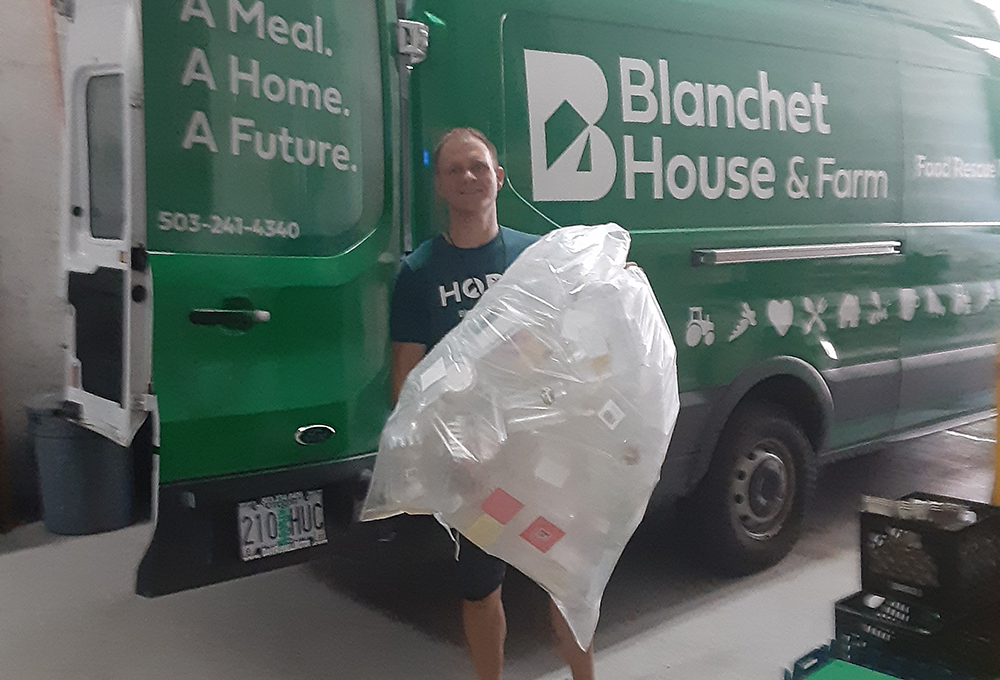
Chad Seelye holds a 60-gallon bag full of PET #1 plastic for recycling.
James Recycling
James Harris, 24, started his recycling business when he was 17 years old with help from his mom Kathi Goldman. He accepts many items that are not allowed in a typical curbside pick-up.
James has Asperger’s syndrome, a form of high-functioning Autism, and is passionate about the environment. The business has helped James develop professional skills including socializing which had been a challenge for him as a teen.
“I’m really proud of him,” said Kathi. “I mean if you would have seen him when he was younger you would never have pictured him where he is now… it’s amazing,” she told KGW News.
Thanks to James’ Recycling, Blanchet House is now able to drop off plastic PET #1 containers for recycling.
“We usually charge for our services but I could not take any payment from Blanchet House because it’s such a needed and worthy cause,” says Kathi Goldman. “Everything Chad brings us is well sorted and clean so it’s not a lot of labor to take the #1 PET items.”
Every two weeks, Chad drops off five to seven 60-gallon bags filled with PET #1 plastic containers.
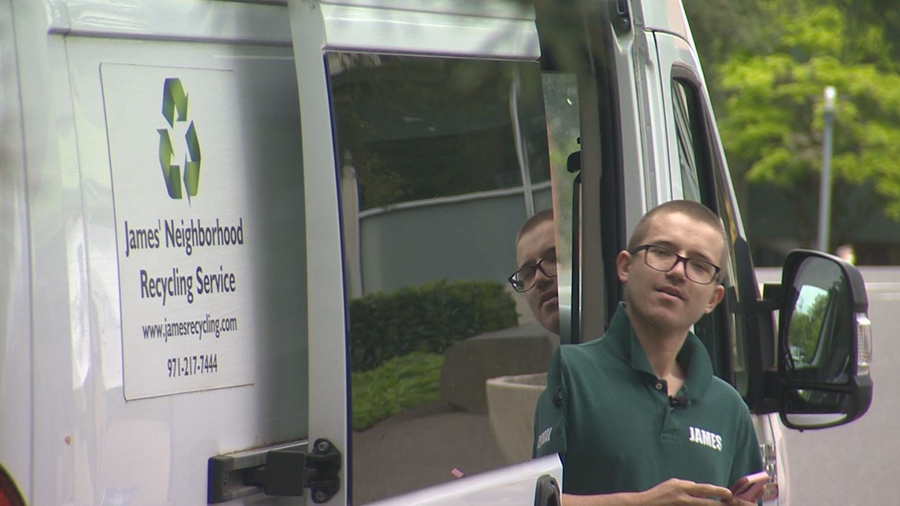
James Harris of James’ Recycling. (Photo by KGW News.)
About #1 PET Plastic
Polyethylene Terephthalate (PET) is one of the most commonly used plastics in food packaging. It is intended for single-use applications because it is difficult to clean and can leach carcinogens. Containers made of #1 PET plastic should be recycled but not reused.
Recyclers like James collect this plastic in bulk and then take it to wholesale recyclers. There the items are shredded into small flakes which are used to make new PET bottles, not for food storage or spun into polyester fiber. Recycled plastic fiber can be used to make textiles such as fleece, carpet, stuffing for pillows and life jackets, and other products.
Currently, James’ Recycling works with Denton Plastics in Gresham, Oregon to turn used plastics into innovative products to help the environment.
A Shared Passion for Plastic Recycling
This recycling partnership furthers Blanchet House’s goal to be a zero-waste nonprofit organization. In addition to plastic recycling, food scraps from Blanchet House’s kitchen go to feed the animals at Blanchet Farm and a partnering farm. Donated clothing that is unacceptable to distribute is turned into cleaning rags by Pioneer Wiping Cloths in St. Johns, OR.
“Sharing the passion of James and his recycling company, I hope to continue to build relationships within the community for the common goal of making the world a greener and more eco-friendly place to live,” Chad says.
James’ Recycling charges only $15 a month to accept plastic from households but because they are a small family-owned business its capacity is limited. Small recycling businesses are popping up in many cities across the US. Check with your local waste management company for a recommendation.
“Every little bit adds up and if we all pitch in and do our part, we can help the earth continue to be a nice place to live,” Chad says. “We can make a difference to our planet, even if it is one clamshell at a time.”














